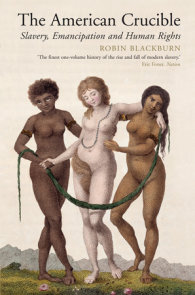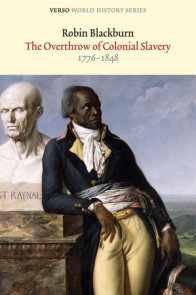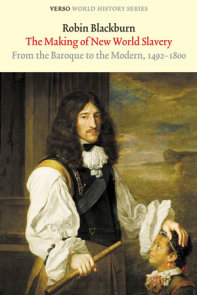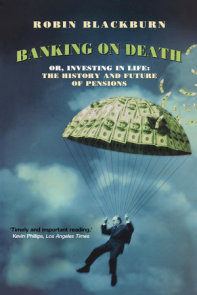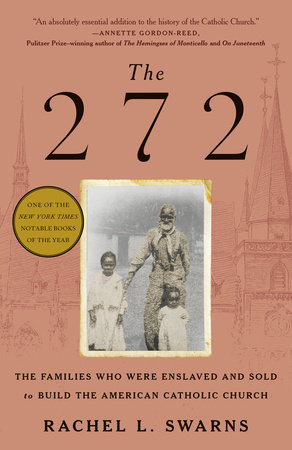

The Reckoning
By Robin Blackburn
By Robin Blackburn
By Robin Blackburn
By Robin Blackburn
Category: 19th Century U.S. History | World History
Category: 19th Century U.S. History | World History

-
$44.95
Feb 20, 2024 | ISBN 9781804293416
-
Feb 20, 2024 | ISBN 9781804293423
YOU MAY ALSO LIKE
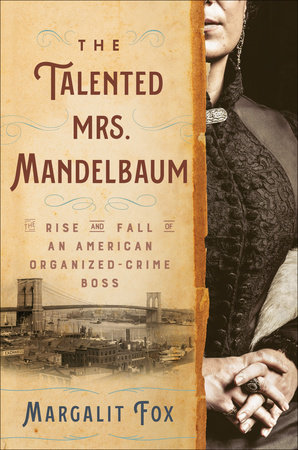
The Talented Mrs. Mandelbaum

Proud Shoes
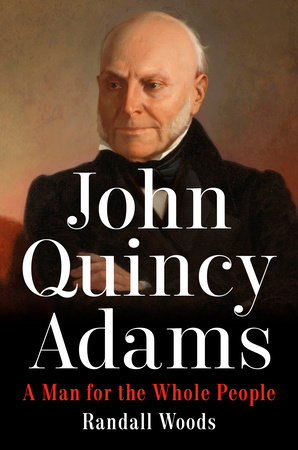
John Quincy Adams
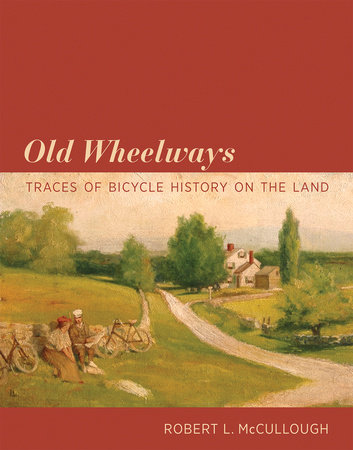
Old Wheelways

The Demon of Unrest

Our Kindred Creatures
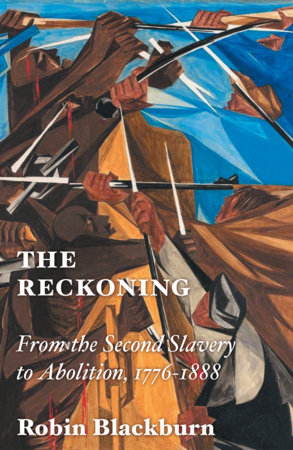
The Reckoning

Frederick Douglass: Autobiographies (LOA #68)
Praise
“Tremendously impressive, the result of a lifetime of learning. Historical writing at its best”
—Marcus Rediker, author of The Slave Ship
“By concluding his decades-long project on New World slavery, and by drawing the attention of British readers to an often-neglected aspect of that history, Blackburn has fittingly capped a lifetime of scholarship.”
—Michael Taylor, Literary Review
“A comprehensive history of the final years of slavery in the Americas … The Reckoning provides important insight into why the United States political and commercial reality is where it’s at today.”
—Ron Jacobs, Counterpunch
“A magnificent conclusion to a quartet of books on New World slavery … in explaining the economics of the Second Slavery [Blackburn] never lets us forget the brutality under-pinning it. It kept me riveted throughout.”
—Chris Bambery, Counterfire
“Robin Blackburn, longtime editor of the New Left Review, is probably the foremost Marxist historian of New World slavery working today … With The Reckoning: From the Second Slavery to Abolition, 1776-1888, the historian provides the long-awaited concluding volume to his chronological trilogy on racial slavery in the New World.”
—Owen Dowling, Jacobin
“Slavery in America, Brazil, and Cuba relied on capitalist markets, which supplied credit and demand for slave-made goods. The Reckoning, Robin Blackburn’s monumental history, offers a dizzying account of the politics behind this system’s rise and fall.”
—Alec Israeli, Jacobin
Table Of Contents
Introduction: Why the ‘Second Slavery’?
Patterns of the ‘First Slavery’
Slavery’s Survivors: The American South, Brazil, Cuba
Distinctiveness of the Second Slavery
Industry, Finance and Slavery
Fortifications of the Second Slavery
Part One: Westwards Expansion
I Pioneers of the Second Slavery
Contested Origins of the United States
The US Constitution and Slavery
An Abolition Moment?
The Northwest Ordinance and Militia Act
From the Haitian Revolution to the Louisiana Purchase
Birth of the White Man’s Republic
Indian Removal and the German Coast Revolt
The Price of Compromise
The Missouri Controversy
A Choice for Slavery
II The Making of the Hispano-Cuban Elite
A Cuban Miracle?
Cuba as a ‘Society with Slaves’
The British in Havana
The Hispano-Cuban Reconquest of Florida
The Great Slave Revolt in St Domingue
The Plantation Surge
Cuba as a Slave Society
The Colonial Pact
A Model Colony?
III Brazil: Independence, Monarchy, Slavery and Citizenship
Patterns of Race and Slavery
Mercantilism’s End and a New Slave Trade Boom
Stirrings of Independence and Anti-slavery
The Last Days of Colonial Brazil
Adherence to the Emperor
Liberty, Pacification and Terror in Bahia
Pedro’s Setbacks and Abdication
The Regency and the Slave Trade
Brazil and Backwardness
Romanticism and ‘Natural History’
Power Was Everything
Brazil Ends the Slave Trade
IV Life and Toil on the Slave Plantation
Racial Capitalism and the Chattel Principle
A Multitude of Tasks
‘Vigilance Without Punishment is an Illusion’
The Productivity of Gang Labour
The Slaveholder as Colonist and Potentate
Natural Economy and the Reproduction of the Slave Population
V Slaveholder Capitalism, Credit and Westwards Expansion
Slaveholders and Modernity
Dimensions of the Plantation Boom
Slavery Away from the Plantations
Credit is King?
Mechanization and its Limits
The Special Case of Sugar Processing
Accounting for Slavery
Planters Ride the Business Cycle
Slave Dealers Become Sugar Lords
How Cotton Paid for Empire
Part Two: Why the Slaveowners Lost
VI. War, Peace and Slavery, 1815-60
Mechanics of the Congress System
Conservative Reaction and Bourgeois Advance
The Vienna Congress and the Slave Trade
Latin America, Britain and the Monroe Doctrine
A Congress of the Americas?
The Fate of Cuba
Brazil, Britain and the Upshot of 1850
The Diplomacy of Bullies
Filibustering in Texas and Cuba
Mutations of the Peace
VII. Anti-Slavery and the Origins of the Civil War
Anti-Slavery and the Northern Milieu
The Appeal and the Liberator
The American Anti-Slavery Society
‘A Shock as of an Earthquake’: Pro-Slavery Overreaches
Splits over Women’s Rights
The Whig and Liberty parties
The Role of Frederick Douglass
Political Abolitionism, Free Soil and the Wilmot Proviso
Militant Anti-slavery
The Dynamics of the Sectional Conflict
The Fugitive Slave Law and Underground Railroad
Bleeding Kansas
The Rise of the Republican Party
The Slave Power and the Dred Scott Decision
John Brown’s Body
The Last Cords of Union Break
The Meaning of Secession: A Slaveholders’ Revolt
VIII. Emancipation and Reconstruction in North America
War for the Union
Novelty of the US Civil War
Lincoln Discovers that Patriotism Is Not Enough
The Emancipation Proclamation
Emancipation from Above and Below
The Defeat of the Confederacy
Presidential Reconstruction and the Radical Challenge
The Radical Programme: Confiscation and Black Suffrage
The Rise and Fall of Radical Reconstruction in the South
The North and Radical Reconstruction
Blacks and Whites in the New South
A Second Revolution?
IX. The Ending of Slavery in Cuba
Cuba and Isabelline Spain
Puerto Rican Comparisons
Tepid Abolitionism of the Cuban Middle Class
Spain’s Politics of Attraction
Crisis of the Isabelline Regime
Abolitionism and the Priorities of Imperialist Diplomacy
The Moret Law
The ‘Lottery of Princes’
The Republic of Dukes
Bourbon Restoration and the Triumph of the Rentier
The Pact of Zanjón
Slavery Ends at Last
The United States Seizes Control
X. Brazil: The Last Emancipation
Slavery’s Place in the Imperial Order
Repercussions of the Atlantic Slave Trade Ban
The War with Paraguay
Crabwise Advance of Emancipationism
The Rio Branco Law of 1871
The Political Economy of Freedom
Church and State
The Social Profile of Brazilian Abolitionism
Republicanism and Positivism
The Abolitionist Offensive, 1880-4
The Final Assault on Slavery
Ordered Freedom
‘A Tattered and Ridiculous Liberty’
Epilogue: Legacies of Slavery and Abolition
Acknowledgements
21 Books You’ve Been Meaning to Read
Just for joining you’ll get personalized recommendations on your dashboard daily and features only for members.
Find Out More Join Now Sign In







